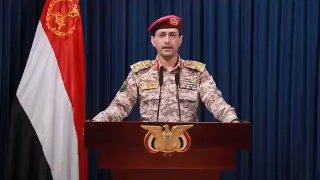
The recent drone attack in Tel Aviv has caused quite a stir in the international community. The Houthi rebels, based in Yemen, have claimed responsibility for the attack, stating that it was meant to showcase their new drone technology.
According to the Houthi rebels, the drone used in the attack is called “Jaffa,” named after the city of Tel Aviv in Arabic. They claim that this drone is undetectable by radar and other surveillance technology, making it a powerful weapon in their arsenal.
This attack comes at a time of heightened tension in the region, with ongoing conflicts between Israel and various militant groups. The use of drones in warfare is becoming more common, with both state and non-state actors using them for surveillance and attacks.
The international community has condemned the drone attack in Tel Aviv, calling for a peaceful resolution to the conflict and urging all parties to refrain from further violence. The use of drones in conflict situations raises important questions about the ethics and legality of such weapons, as well as the need for effective regulation and oversight.
As the situation continues to unfold, it is crucial for all parties involved to engage in dialogue and diplomacy to prevent further escalation of violence. The use of drones in warfare is a complex issue that requires careful consideration and international cooperation to address effectively.